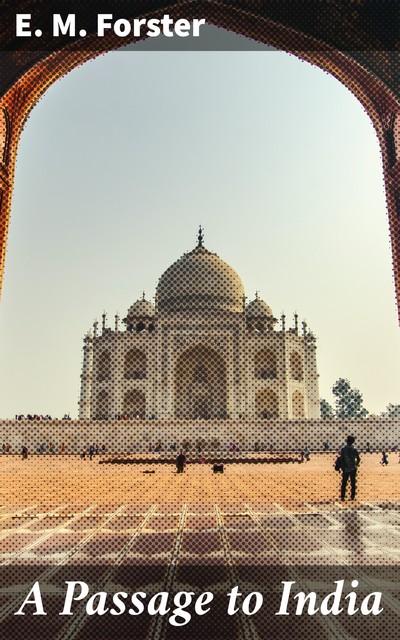A passage to India
356 printed pages
- Copyright owner
- Bookwire
- Original publication
- 2021
- Publication year
- 2021
- Publisher
- Good Press
Impressions
- Regina Azoulayshared an impression7 years ago👍Worth reading💞Loved Up
Beautifully written, sweet and affectionate, really enjoyable.
- Karina Saakyanshared an impression4 years ago👍Worth reading
- Vlasovsshared an impression4 years ago👍Worth reading🚀Unputdownable
Quotes
- Anna Uvarovahas quoted2 years agoso happened that Mrs. Moore and Miss Quested had felt nothing acutely for a fortnight. Ever since Professor Godbole had sung his queer little song, they had lived more or less inside cocoons, and the difference between them was that the elder lady accepted her own apathy, while the younger resented hers. It was Adela’s faith that the whole stream of events is important and interesting, and if she grew bored she blamed herself severely and compelled her lips to utter enthusiasms.
- Anna Uvarovahas quoted2 years agoamidullah had called in on his way to a worrying committee of notables, nationalist in tendency, where Hindus, Moslems, two Sikhs, two Parsis, a Jain, and a Native Christian tried to like one another more than came natural to them. As long as someone abused the English, all went well, but nothing constructive had been achieved, and if the English were to leave India, the committee would vanish als
- Anna Uvarovahas quoted2 years agos for Miss Quested, she accepted everything Aziz said as true verbally. In her ignorance, she regarded him as “India,” and never surmised that his outlook was limited and his method inaccurate, and that no one is India.
fb2epub
Drag & drop your files
(not more than 5 at once)


